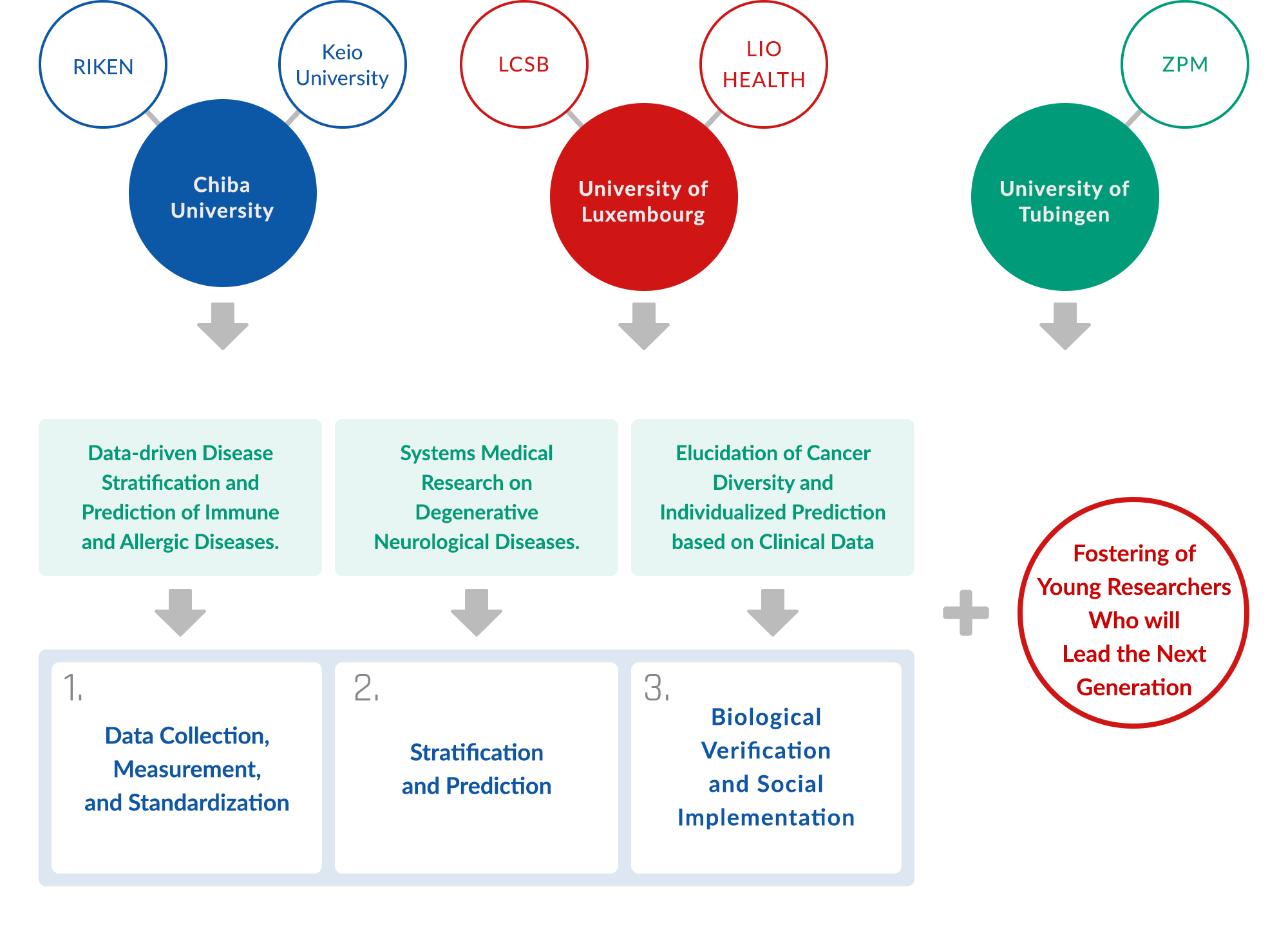TOPICS
- 2021.06.15 Information
GREETING
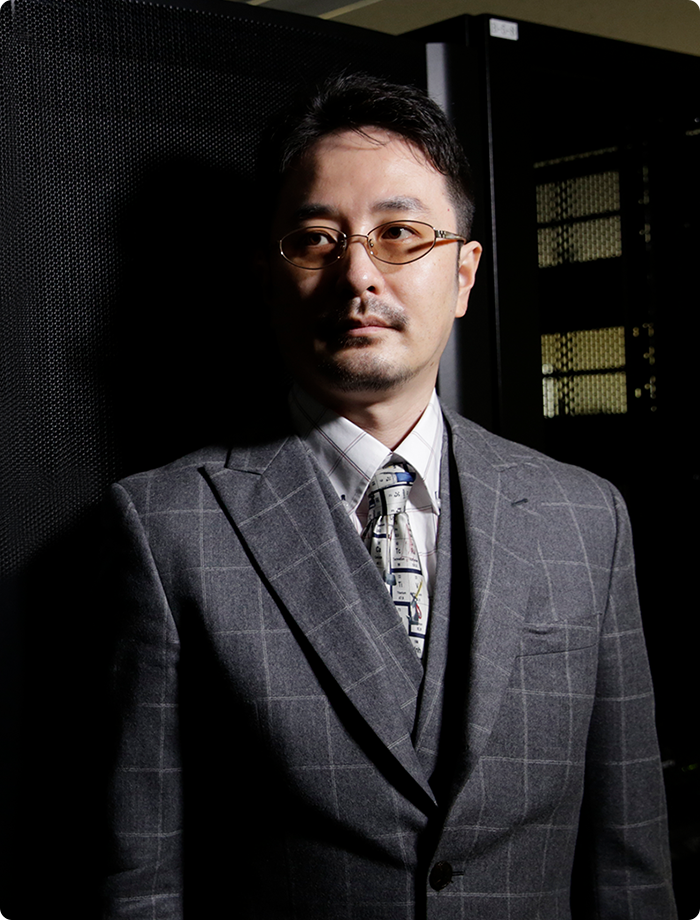
Eiryo Kawakami
- Professor, Department of Artificial Intelligence Medicine, Graduate School of Medicine, Chiba University
- Director, the Center for Artificial Intelligence Research in Therapeutics
- RIKEN Medical Sciences Innovation Hub Program Team Leader, Health Data Mathematical Reasoning Team
- Unit Leader, Healthcare and Medical Data-Driven, AI-Based Predictive Reasoning Development Unit
In recent years, the introduction of data science in medical research has been rapidly progressing due to the widespread use of artificial intelligence (AI) technologies in the development of measurement techniques. Especially for cancer diseases and chronic inflammatory diseases, including allergic immune diseases and lifestyle-related diseases, which are diverse and difficult to explain and treat based on a single model, data-driven research is gaining attention, in which researchers perform comprehensive observations and data acquisition on target diseases and create data-based personalized models. This data-driven research requires a team of various specialists, including those in clinical medicine, basic biology, systems biology, and mathematical information science, to make an interdisciplinary approach. Since there are few research institutions that cover all these fields of specialty even in other countries, international collaborative research is important. However, it is very difficult to transfer medical data across borders due to privacy and ethical issues. Thus, our research center was established with the support of the Japan Society for the Promotion of Science (JSPS) to promote data-driven medical research by moving researchers rather than data.
Another purpose of this center is to foster young researchers who will lead the next-generation healthcare and medical research. In recent years, medical and life sciences have been undergoing a transition from the era of genomics and molecular biology to the era of artificial intelligence (AI) and data sciences. In medical and biological sciences, researchers who will play a central role in the next generation are expected to have advanced expertise of not only medical science but also mathematical science. This project is centered on the Center for Artificial Intelligence Research in Therapeutics, Graduate School of Medicine, Chiba University, and we want to create an environment in which young Japanese and foreign researchers study abroad for several months at research centers, including the University of Luxembourg and the University of Tubingen, and which enables them to have a deep mutual understanding and play a central role in research projects.
I wish that young researchers will transcend the national boundaries and the borders of academic fields by participating in this project, and acquire expertise and achievements in multiple fields, in addition to their original expertise.
MORE
PROJECTS
- 01Data-driven Disease Stratification and Prediction of Immune and Allergic Diseases
- Immune and allergic diseases, such as atopic dermatitis and rheumatoid arthritis, are multifactorial diseases that develop due to a complex combination of genetic, immune, and environmental factors. It is becoming clear that their nature is a collection of a wide variety of disease states. In previous research, however, each disease was often reported as a single disease state, and such studies did not lead to adequate understanding of the disease or clinical application. In this research, we will recruit researchers in systems biology and mathematical information science in Japan and foreign countries, develop an algorithm to classify the disease states of patients, using data collected continuously and systematically by Chiba University, and create a model for predicting changes in the disease state for each patient population thus classified. Thereby, we will propose accurate understanding and prediction of disease states and personalized medicine.
- 02Systems Medical Research on Degenerative Neurological Diseases
- Degenerative neurological diseases, including Parkinson’s disease, become increasingly common with the aging of the population worldwide, compromising the healthy life expectancy of patients. Although multiple genetic and environmental factors associated with the onset of the diseases have been identified, the mechanism of onset has not been elucidated, and there is no prevention or complete cure for the diseases. This research integrates multiparametric clinical data based on the research base of systems medicine of the University of Luxembourg, in order to stratify degenerative neurological diseases and construct individualized models of disease onset and disease state.
- 03Elucidation of Cancer Diversity and Individualized Prediction based on Clinical Data
- Cancer has been the leading cause of death in Japan since 1981, and the number of affected patients has increased worldwide as the population ages. In addition to genetic factors, cancer is considered to be caused by exposure to external factors and develop in the long-term process, and it is known that prognosis and drug response vary greatly according to stage and histological type. In recent years, with the advent of effective anticancer drugs, such as poly (ADP-ribose) polymerase (PARP) inhibitors and antibody-based drugs, it has become highly desirable to predict disease stage and histological type before surgery and to develop an appropriate treatment strategy for each patient. In this research, we will understand the diversity of cancer by applying the techniques of machine learning and mathematical information science to the data on various cancer diseases accumulated by the University of Tubingen, and develop an individualized prediction algorithm.
Japan members
-
Skin Homeostasis Research Masayuki Amagai
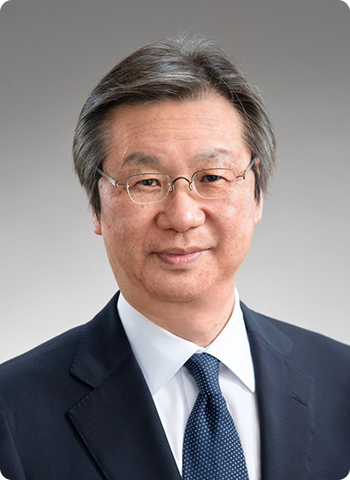
- Masayuki Amagai
- Professor, Dean of Keio University School of Medicine
- Team Leader, Laboratory for Skin Homeostasis, RIKEN Center for Integrative Medical Sciences
- Masayuki Amagai
- Professor, Dean of Keio University School of Medicine
- Team Leader, Laboratory for Skin Homeostasis, RIKEN Center for Integrative Medical Sciences
I have two main research themes. One is pemphigus, an autoimmune skin disease. We are cloning complementary DNA (cDNA) for pemphigus antigen desmoglein, creating recombinant proteins, and developing an enzyme-linked immunosorbent assay (ELISA) technique as a serodiagnostic test for pemphigus. We are also conducting our research consistently from the creation of a mouse model of pemphigus through investigator-initiated clinical trials. The other theme is atopic dermatitis, which we address in this project. Percutaneous sensitization plays an important role in the development of atopic dermatitis, and we are mainly studying how foreign antigens can cross the skin barrier and encounter the immune system, as well as the mechanism by which the normal skin barrier becomes abnormal.
At RIKEN, we have also developed a mouse model of atopic dermatitis, and have various data available. At Keio University, on the other hand, there are data available on the human genome and gene expression, bacterial flora on the skin surface, barrier function, and serum markers obtained based on information collected from patients. I believe that it is my role to contribute to this project by managing these data all together and analyzing them together with data revealed in the model mice, using multi-modal human data. Since we are also working with researchers in Luxembourg and Germany, we wish to promote research by effectively utilizing overseas cases, technologies, and laboratory tests, as well as those in Japan.
Atopic dermatitis is a common disease that affects 1 in 5 people. However, it does not have a single cause, and some people respond very well to a certain treatment while others do not respond very well. Therefore, our goal is to stratify patients ultimately through research in this project. We aim to provide personalized medicine that provides treatments and drugs suitable for individual patients. For this purpose, the training of young researchers is also very important. Approaches to treatment change over time, but our goal is the same – we want to provide a reasonable and efficient treatment for patients. We will make efforts to foster young researchers so that they can have exposure to the data in this project and communicate what is obtained from the data in some form or other. On such occasions, what we need to do is not to teach them how to approach, but to foster their curiosity through daily discussion or by letting them experience the “joy of knowing the unknown.” I wish that while always being curious and having an attitude of always asking “why,” each young researcher will grow up and make discoveries that will lead to social contribution.
- Major Articles
- https://researchmap.jp/read0190798/published_papers/22957501
- Press Release
- https://www.riken.jp/press/2019/20190619_2/index.html
-
Biomedical Science Makoto Arita
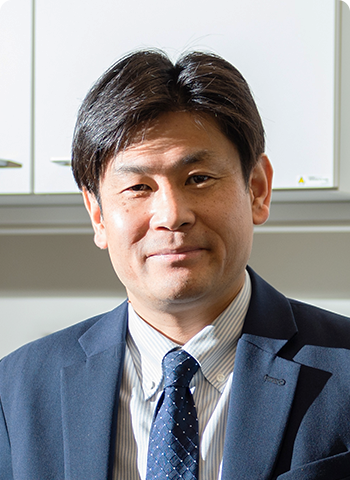

- Makoto Arita
- Professor, Keio University Faculty of Pharmacy
- Team Leader, Laboratory for Metabolomics, RIKEN Center for Integrative Medical Sciences
- Visiting Professor, Graduate School of Medical Life Science, Yokohama City University
- Makoto Arita
- Professor, Keio University Faculty of Pharmacy
- Team Leader, Laboratory for Metabolomics, RIKEN Center for Integrative Medical Sciences
- Visiting Professor, Graduate School of Medical Life Science, Yokohama City University
There are more than 100,000 different types of lipids in the body. My research theme is understanding at a molecular level how their metabolic balance affects human health. When various lipids, such as fats, oils, and cholesterol, are absorbed as nutrients into our body, they are used as constituents of the cell membrane and energy sources, and are metabolized into bioactive substances, such as lipid mediators and bile acid and steroid hormones, to carry out various bioregulatory functions, including inflammation and immune control. On the other hand, the lipid balance in the body is significantly affected by different dietary habits. For example, do you know that fish oil, linseed oil, and perilla oil, which are high in omega-3 fatty acids, are good for the body? We are working to elucidate questions, such as: “are omega-3 fatty acids really good for the body?”; “against what disease are they effective?”; and “what is its mechanism of action?”
What I want to do in this project is data-driven personalized medicine. For example, in detecting individual differences in the risk of specific diseases, our understanding may be enhanced by adding information on lipid metabolism balance as an environmental factor, in addition to genomic information. By decoding big data on lipid metabolites in the body and relating them to biological function information using the comprehensive lipid analysis technology that is currently under development by our team, we believe that we will be able to contribute to personalized medicine and data-driven science. This research is expected to make a significant progress through collaboration with foreign organizations, from a perspective of perceiving biology from lipid diversity in life and based on advanced analytical technologies.
In the future era, it will be important to foster young researchers who have perspectives of both informatics and biology and can extract meaningful information from a huge amount of measurement data and generate biological interpretations and hypotheses from the information. It is important that researchers can deal with AI and informatics, but without a biological perspective, the knowledge of AI and informatics does not lead to an understanding of disease states or life phenomena. Biologists will also be required to have an ability to utilize big data successfully and process information efficiently. I believe that the development of cross-sectional research will lead to the improvement of healthy life expectancy and quality of life (QOL) of people in the future.
-
Integrative Medical Sciences Hiroshi Ono
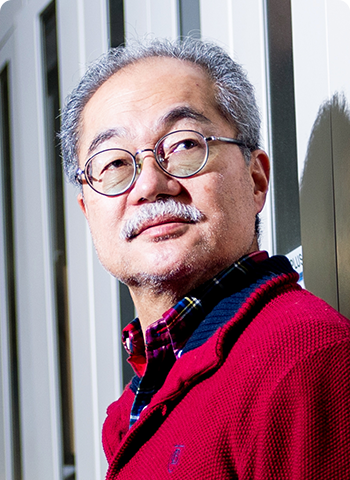
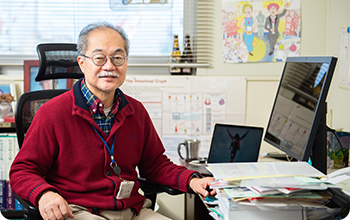
- Hiroshi Ono
- Professor, Graduate School of Medicine, Chiba University
- Team Leader, RIKEN Center for Integrative Medical Sciences
- Hiroshi Ono
- Professor, Graduate School of Medicine, Chiba University
- Team Leader, RIKEN Center for Integrative Medical Sciences
My background is in immunology, and I have been studying mucosal immunity and intestinal immunity for the last 10 years or so. Especially in the context of gut bacteria and the host (humans and mice as a model organism), we are conducting research as to how the host “sees” or responds to gut bacteria and how gut bacteria affect the host. It is known that there are more than 40 trillion intestinal bacteria in the large intestine alone. Although this large number of bacteria reside, the host is not unconditionally receptive to those bacteria. The host is trying to remove bacteria in one way or another, such as by producing and secreting antibodies called immunoglobulin A (IgA) from the mucosal surface and stimulating bowel movements in a neutralizing manner. M cells, specialized intestinal epithelial cells that help produce IgA, are also the target of our research.
The University of Luxembourg, which is participating in this project studies Alzheimer’s disease as a target. Since gut bacteria are now said to be involved in the development of Alzheimer’s disease, I wish to combine our technology with a vast number of samples collected by the counterpart, and elucidate how the gut bacteria as an environmental factor are affecting the disease. Once elucidated, we may be able to delay or prevent the progression of Alzheimer’s disease. This is just one example, but we would also like to elucidate relationships between gut bacteria and other diseases in which environmental factors seem to be a greater cause than genetic factors, such as type 2 diabetes mellitus, ulcerative colitis, and Crohn’s disease.
We aim to create a future in which we will be able to prevent as many diseases as possible. My target is gut bacteria, but since all participants in this project have different targets, we can approach the same goal from multiple perspectives. As a result, I hope that we will contribute to the society by ultimately extending healthy life expectancy or reducing healthcare costs.
The fostering of young researchers is a major theme of this project. I not only present my thoughts on a daily discussion, but also speak of mistakes I made myself in the past and support them to ensure that they can perform experiments efficiently. The world of medical science is making a rapid progress, and it is quite common that experimental techniques I used in my young age cannot be applied to modern experiments even under the same conditions. However, there is always a common part between the two. If we can increase the international stock of know-how by utilizing this project, it will be useful for the future.
- Major Articles
- https://researchmap.jp/read0117977/published_papers/30446287
- Press Release
- https://www.riken.jp/press/2020/20200827_1/index.html
-
Artificial Intelligence Medicine Eiryo Kawakami
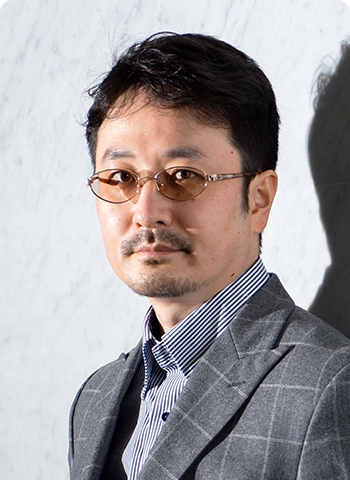
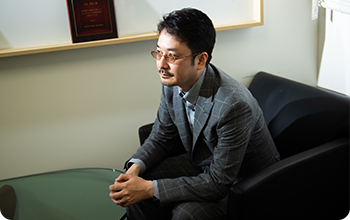
- Eiryo Kawakami
- Professor, Department of Artificial Intelligence Medicine, Graduate School of Medicine, Chiba University
- Director, the Center for Artificial Intelligence Research in Therapeutics
- RIKEN Medical Sciences Innovation Hub Program
- Team Leader, Health Data Mathematical Reasoning Team Unit Leader
- Healthcare and Medical Data-Driven, AI-Based Predictive Reasoning Development Unit
- Eiryo Kawakami
- Professor, Department of Artificial Intelligence Medicine, Graduate School of Medicine, Chiba University
- Director, the Center for Artificial Intelligence Research in Therapeutics
- RIKEN Medical Sciences Innovation Hub Program
- Team Leader, Health Data Mathematical Reasoning Team Unit Leader
- Healthcare and Medical Data-Driven, AI-Based Predictive Reasoning Development Unit
I have been interested in artificial intelligence (AI) and machine learning since I entered the medical school in 2001, and I wanted to conduct medical research utilizing AI. In those days, however, we were in an AI winter in which data had not been accumulated and could not be used for medical research. For this reason, I began to study influenza viruses after obtaining a physician’s license. Subsequently, it was in 2013 that I started research on medical biology using a computer under Dr. Hiroaki Kitano. Since then, I have continued to think whether machine learning and mathematical science can be used to solve challenges in medical and biological sciences, and whether we can create, conversely, an information processing system that utilizes the mechanisms of life.
In addition to AI and machine learning, our group is introducing and improving the latest mathematical methods, such as topological data analysis and data assimilation, and conducting research for the realization of preventive and personalized medicine for various diseases. Taking advantage of our experience of research in a wide range of medical scientific fields, I hope that we will be able to get a bird’s-eye view of many research steps of this project and promote data-driven medical research that combines mathematical information science with medical and biological sciences at a high level.
We will also focus on fostering young researchers by taking advantage of the fact that specialists in various fields from Japan and foreign countries have organized an international collaborative research team in this project, and laid a foundation that leads the world in terms of both data and technology in multiple disease areas. By participating in this project and playing a central role in various steps of data-driven medical research, young researchers will develop the expertise of multiple disciplines and made achievements. The achievements will probably come out 10 or 20 years later, but they will certainly lighten the future of healthcare.
- Major Articles
- https://researchmap.jp/eiryok/published_papers/22090060
- Press Release
- https://www.riken.jp/press/2019/20190415_1/index.html
-
Cellular and Molecular Medicine Haruhiko Koseki
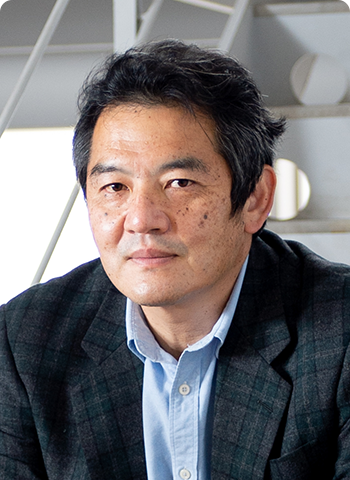
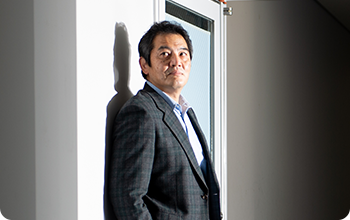
- Haruhiko Koseki
- Professor, Department of Cellular and Molecular Medicine, Graduate School of Medicine, Chiba University
- Professor, National University Corporation Chiba University
- Deputy Director, RIKEN Center for Integrative Medical Sciences
- Team Leader, Laboratory for Developmental Genetics
- Haruhiko Koseki
- Professor, Department of Cellular and Molecular Medicine, Graduate School of Medicine, Chiba University
- Professor, National University Corporation Chiba University
- Deputy Director, RIKEN Center for Integrative Medical Sciences
- Team Leader, Laboratory for Developmental Genetics
I am studying genetics and embryology. The main theme of my research among them is epigenetics. Genetics is just one technology at present, but we have used a great number of disease model animals and created animal genetic resources in the process. And now, it is the biology of diseases that we will address in this project. Using various disease model animals, our team aims to elucidate how diseases occur. Professor Kawakami’s team, in contrast, is trying to develop the methods of stratifying patients and predicting prognosis based on human data. I believe that collaborative research by the two teams will complement each other and help us find the best treatment.
The University of Tubingen in Germany and the University of Luxembourg, which are participating in this joint research project, are also working with a similar approach. Specifically, the University of Tubingen studies liver cancer and hepatitis, while the University of Luxembourg studies nerve inflammation, such as Parkinson’s disease and Alzheimer’s disease. In this project, I wish to stratify diseases more logically to find a curative treatment or explore an actual course of treatment for complete cure. The three universities target different diseases. However, since they use the same approach, the techniques required for use will be similar. Finding these techniques will surely facilitate each other’s research.
The content of our current research has not yet been approved as a study program, and it is younger researchers who apply this to future treatment. Our role is to develop human resources who can link data science-based medicine to actual treatment to the extent possible. In addition, I personally consider that the fostering of human resources who can merge disease biology using model animals and data science-based disease biology may result in the development of human resources who can become a leader in this field. The important thing is to challenge yourself. I would be happy if young researchers who have the same spirit of taking on challenges as ours could gather here and eventually go out into the world.
- Major Articles
- Chromatin and epigenetics in development: a Special Issue.
- Press Release
- https://www.riken.jp/press/2018/20181011_1/index.html
-
Data-Driven Life Medical Science Research Jun Seita
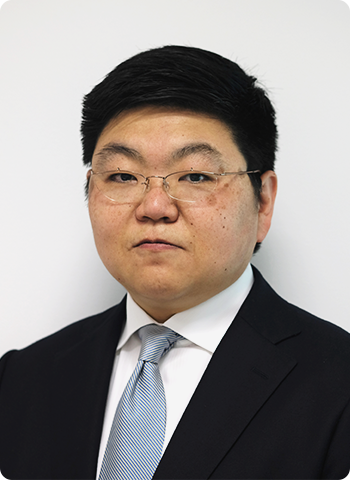
- Jun Seita
- Team Leader, RIKEN Center for Integrative Medical Sciences
- Team Leader, RIKEN Medical Sciences Innovation Hub Program
- Visiting Professor, Graduate School of Medicine, Chiba University
- Jun Seita
- Team Leader, RIKEN Center for Integrative Medical Sciences
- Team Leader, RIKEN Medical Sciences Innovation Hub Program
- Visiting Professor, Graduate School of Medicine, Chiba University
In my laboratory, I am conducting research with a theme of predicting people’s health or disease status using AI, especially deep learning. This research requires data learned by AI, such as historical data on the health status of a certain number of people and hospital medical record information. When conducting such research globally, it is important to comply with privacy protection laws that vary from country to country. Especially in the European Union (EU), personal information is strictly protected by the EU General Data Protection Regulation (GDPR). Establishing a framework for conducting global research while responding to these situations is one of the major goals of this project.
Even within one country, the profiles of patients vary from one hospital to another. Some hospitals are visited by many children because they have a good pediatric department, while other hospitals are visited by many female patients. Thus, patient background data available at each hospital slightly vary from one hospital to another. Each AI machine that has learned at each hospital grows up with such differences reflected in its performance. The technique of adapting AI that has once learned some tasks to different environments is referred to as transfer learning, and we are also working on this field. If transfer learning appropriate for healthcare can be established, it can also be applied to hospitals in Germany and Luxembourg that participate in this joint research project, while reducing the need to transfer data across countries and protecting personal information. I believe that transfer learning is an important research subject for AI to play an active role in future healthcare in all countries.
Deep learning is an extremely new and very “hot” academic field, and we welcome the participation of young researchers who are flexible in thinking.
-
Molecular Diagnosis Tomoaki Tanaka
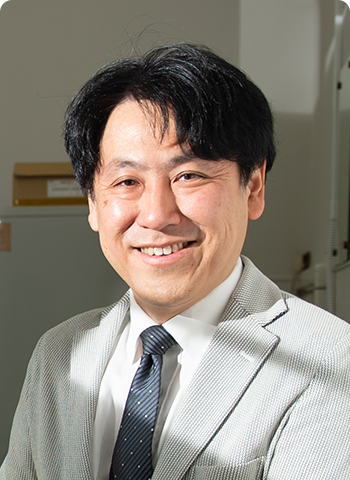

- Tomoaki Tanaka
- Professor, Department of Molecular Diagnosis, Graduate School of Medicine, Chiba University
- Tomoaki Tanaka
- Professor, Department of Molecular Diagnosis, Graduate School of Medicine, Chiba University
I am specializing in molecular diagnosis and studying the mechanisms and causes of diseases. Using state-of-the-art technologies, such as single-cell analysis and proteomics, we perform an integrative analysis of a considerable number of genes in a single cell and genomic information, etc. with the aim of clarifying the mechanism and status of diseases from an unprecedented perspective, thereby leading to diagnosis and treatment. We deal especially with diabetes mellitus, lifestyle-related diseases, hormonal diseases, and cancer. We are not only analyzing how molecules and genes are involved in these diseases, but also working to develop diagnostic markers and treatments based on such analyses.
In this project, we also conduct similar research and address several metabolic diseases. For example, in Europe, the United States, and Japan, where we conduct joint research, there are differences among these regions in body size and lifestyle and dietary habits, to which the susceptibility to diabetes is attributable. We believe that one merit of this project is to find a common or uncommon basis by the comparison of races using AI. It is also a great merit that information can be shared across countries and disciplines. Since technologies and specialties have already been greatly advanced, it is impossible for a single laboratory to carry out new advanced research. Collaboration between laboratories specializing in similar fields or combination of technologies in which each laboratory has a strength can not only improve the quality of research but also accelerate the speed of research.
The important thing in research is “Doing the believing.” It is important to give it a try at any rate, rather than thinking and finishing it in your head. Thus, we place importance on encouraging young researchers to take on new challenges, rather than giving them lectures, when we foster young researchers. I myself will continue to conduct research that deserves the Nobel Prize and will continue to take on new challenges myself.
-
Allergy and Clinical Immunology Hiroshi Nakajima
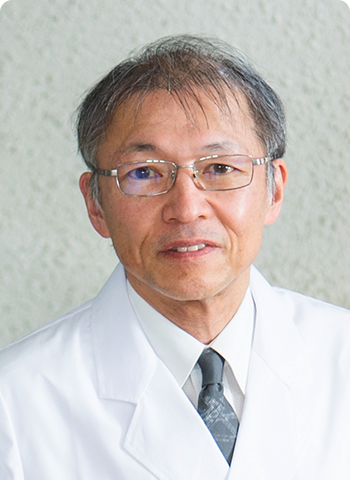

- Hiroshi Nakajima
- Professor, Department of Allergy and Clinical Immunology, Graduate School of Medicine, Chiba University
- Director, Department of Allergy and Clinical Immunology, Chiba University Hospital
- Adjunct Professor, University of California at San Diego
- Hiroshi Nakajima
- Professor, Department of Allergy and Clinical Immunology, Graduate School of Medicine, Chiba University
- Director, Department of Allergy and Clinical Immunology, Chiba University Hospital
- Adjunct Professor, University of California at San Diego
We are working to analyze the molecular mechanisms of allergic diseases, including bronchial asthma and atopic dermatitis, and autoimmune diseases, such as rheumatoid arthritis and systemic lupus erythematosus. We are primarily conducting research using mouse models, but we are also conducting research using samples from patients and research on human immunity using peripheral blood from healthy individuals. We are also conducting clinical research using ultrasound of joints and high-resolution CT, as well as clinical trials that evaluate the efficacy of new drugs.
Prior to this project, we have conducted research in cooperation with Professor Kawakami’s laboratory. For example, when we try to look at changes in gene expression and chromatin in various cells in the research of asthma, the amount of information will be enormous. In clinical research, when we try to acquire ultrasound information on whole-body joints and other clinical information, the amount of information will also be enormous. We have Prof. Kawakami’s laboratory analyze the enormous amount of information using AI. Recently, we usually obtain data in a format more suitable for AI, based on the premise that data are analyzed by AI. This enables analysis that accurately captures time-series changes.
However, since we are not experts in AI, we sometimes have difficulty understanding the data analyzed by experts. Through this project, I expect that we will create a system that can communicate mathematical information extracted by AI, in an understandable way. I hope that such a system will allow us to further our understanding and perform analyses to some extent without bothering Prof. Kawakami. Since this project is a place where we can work with various researchers, I will make daily efforts to contribute to this project from the perspective of clinical immunology. Through this joint research with foreign teams, I wish to expand our perspective to not only AI but also various other fields.
- Major Articles
- https://researchmap.jp/nakajimh/published_papers/26566413
-
Immunology Toshinori Nakayama
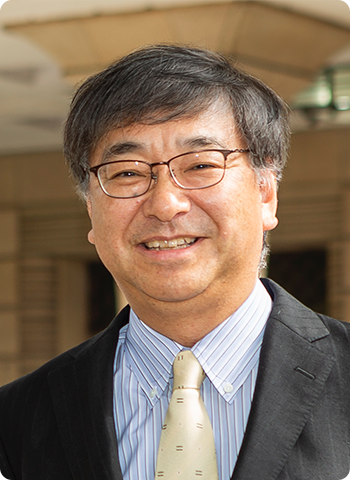
- Toshinori Nakayama
- Professor, Department of Immunology, Graduate School of Medicine, Chiba University
- Vice President, Dean of Graduate School of Medicine and School of Medicine, Chiba University
- Toshinori Nakayama
- Professor, Department of Immunology, Graduate School of Medicine, Chiba University
- Vice President, Dean of Graduate School of Medicine and School of Medicine, Chiba University
My research themes are immunology and allergy. Although the three major allergic diseases are bronchial asthma, allergic rhinitis, and atopic dermatitis, I am currently studying pathogenic T cells that cause eosinophilic sinusitis and asthma, which are common in Europe and the United States. In our body, for example, there are cells called helper T (Th) cells, which help the activity of other immune cells and control the immune response. There are two types of Th cells, and since type-2 helper T (Th2) cells are known to cause allergic reactions, we have been studying Th2 cells for the last 20 years.
Since early 2020, we have seen the pandemic of new coronavirus infection (COVID-19). It has been revealed that in some patients, the disease became severe after the onset of inflammation of blood vessels in the lungs. We are specializing in immunology and not studying infectious diseases, but it is known that Myl9, one of the molecules that we are studying by chance, can cause vasculitis. Thus, we have analyzed samples from patients and searched for predictive biomarkers since August 2020, based on the hypothesis that Myl9 may be used as a biomarker for severe COVID-19. We are planning to draw a certain conclusion by the end of March 2021.
This project of the Japan Society for the Promotion of Science (JSPS) is multinational collaborative research. It will be a valuable opportunity for young researchers to learn in other countries and create a research network. So far, international research exchanges among graduate students and young researchers have also been implemented as global center of excellence (COE) programs, leading graduate programs, etc., but international collaborative research will be accelerated by promoting it in the framework of JSPS projects. Considering the long-term researcher’s life of young researchers in the future, I believe that having a global network in young age will definitely have a positive effect. We have learned about this through experience, and what we need to do is to create a necessary environment for young researchers. Believing that this will also lead to future development of medical science and healthcare, we will focus our efforts on fostering young researchers who can play an active role globally.
- Major Articles
- Nakayama, T. et al.: Th2 cells in health and disease. Annu. Rev. Immunol. 35:53-84 (2017). /10.1146/annurev-immunol-051116-052350
- Press Release
- https://prtimes.jp/main/html/rd/p/000000426.000015177.html
Luxembourg Members
-
ルクセンブルクメンバーの名前

- ルクセンブルクメンバーの名前
- ルクセンブルクメンバーの職位
- ルクセンブルクメンバーの職位
- ルクセンブルクメンバーの名前
- ルクセンブルクメンバーの職位
- ルクセンブルクメンバーの職位
テキストが入ります。テキストが入ります。テキストが入ります。テキストが入ります。テキストが入ります。テキストが入ります。テキストが入ります。テキストが入ります。テキストが入ります。テキストが入ります。テキストが入ります。テキストが入ります。テキストが入ります。
テキストが入ります。テキストが入ります。テキストが入ります。テキストが入ります。テキストが入ります。テキストが入ります。テキストが入ります。テキストが入ります。テキストが入ります。テキストが入ります。テキストが入ります。テキストが入ります。テキストが入ります。
テキストが入ります。テキストが入ります。テキストが入ります。テキストが入ります。テキストが入ります。テキストが入ります。テキストが入ります。テキストが入ります。テキストが入ります。テキストが入ります。テキストが入ります。テキストが入ります。テキストが入ります。
- Major Articles
- https://researchmap.jp/read0190798/published_papers/22957501
- Press Release
- https://www.riken.jp/press/2019/20190619_2/index.html
German Members
-
ドイツメンバーの名前

- ドイツメンバーの名前
- ドイツメンバーの職位
- ドイツメンバーの職位
- ドイツメンバーの名前
- ドイツメンバーの職位
- ドイツメンバーの職位
テキストが入ります。テキストが入ります。テキストが入ります。テキストが入ります。テキストが入ります。テキストが入ります。テキストが入ります。テキストが入ります。テキストが入ります。テキストが入ります。テキストが入ります。テキストが入ります。テキストが入ります。
テキストが入ります。テキストが入ります。テキストが入ります。テキストが入ります。テキストが入ります。テキストが入ります。テキストが入ります。テキストが入ります。テキストが入ります。テキストが入ります。テキストが入ります。テキストが入ります。テキストが入ります。
テキストが入ります。テキストが入ります。テキストが入ります。テキストが入ります。テキストが入ります。テキストが入ります。テキストが入ります。テキストが入ります。テキストが入ります。テキストが入ります。テキストが入ります。テキストが入ります。テキストが入ります。
- Major Articles
- https://researchmap.jp/read0190798/published_papers/22957501
- Press Release
- https://www.riken.jp/press/2019/20190619_2/index.html
INTRODUCTION
※You can zoom in by tapping.
- Data Collection, Measurement, and Standardization
- We will continuously collect high-quality data, focusing on allergic diseases. Since it is presumed to be difficult to stratify diseases and disease states with conventional clinical parameters alone, it will also be important to measure, with high accuracy, new clinical parameters that reflect disease diversity and disease states. Standardization that is not affected by differences among facilities or measurement errors is also a major challenge in utilizing clinical data. By utilizing a standardized system based on data from around the world in omics measurement and promoting the standardization of various clinical data, we are expecting that the techniques for measuring clinical parameters acquired in this project and the algorithms for stratification and prediction based on the techniques will become the world standard.
- Stratification and Prediction
- We believe that data-driven medical research that we address in this project will enable highly accurate predictions based on the disease state of each patient. For example, there are still many diseases for which indication criteria have not been clearly defined for antibody drugs, which have been rapidly introduced into medical practice in recent years. Therefore, it is necessary to appropriately stratify diseases and determine the indication criteria according to each patient’s disease type and condition. This project not only involves many researchers who lead data-driven research in Japan, but also invites world-class researchers in mathematical information science in Luxembourg and Germany. We believe that this project will realize the development of techniques for stratification and prediction that will lead the future world.
- Biological Verification and Social Implementation
- Biological verification is an important step in applying data-based stratification and prediction to actual medical practice. Stratification and prediction by machine learning are not based on universal principles, and may be biased by the original data. For this reason, the validity of stratification and prediction needs to be examined biologically. We will promote reverse translational research that verifies findings and hypotheses from clinical data, by using a corresponding mouse model. Data-based stratification and prediction are provisional and dependent on the type and quantity of data. The development of new treatments or significant changes in the global environment may alter the diversity of disease itself. Therefore, this project aims to create a system that will continue to evolve by continuously collecting data according to the development of medical treatment, rather than creating and continuing to use the best algorithm at some point in time.
ACCESS &
CONTACT
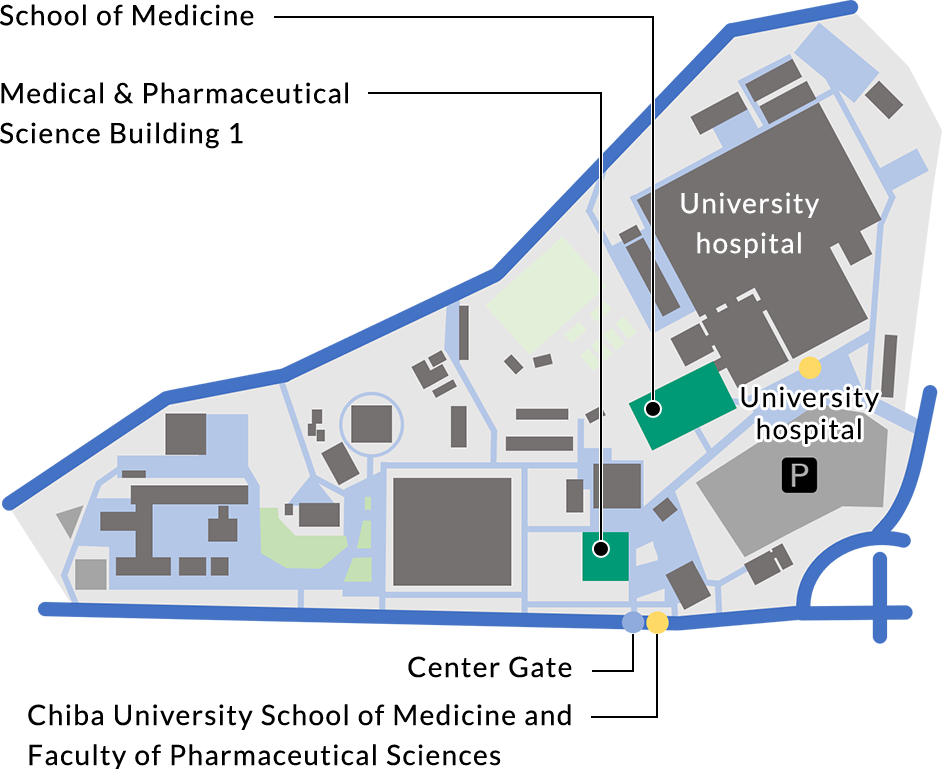
ACCESS
- From JR Chiba St.
- Service route: Chiba University Hospital/Minami Yahagi from Bus stop No.7 at east exit.
Operator: Keisei Bus.
Duration: approx. 15 min.
Get off at “Chiba University School of Medicine and Faculty of Pharmaceutical Sciences”.
- From JR Soga St.
- Service route: University Hospital from the Bus stop No.2 at east exit.
Operator: Kominato Bus/ Chiba-chuo Bus
Duration: approx. 13 min.
Get off at “University Hospital”.
CONTACT
5F, School of Medicine, 1-8-1
Inohana, Chuo-ku,
Chiba-shi, Chiba
260-8670, JAPAN
Department of Artificial Intelligence Medicine
E-mail: keiko-y@chiba-u.jp
